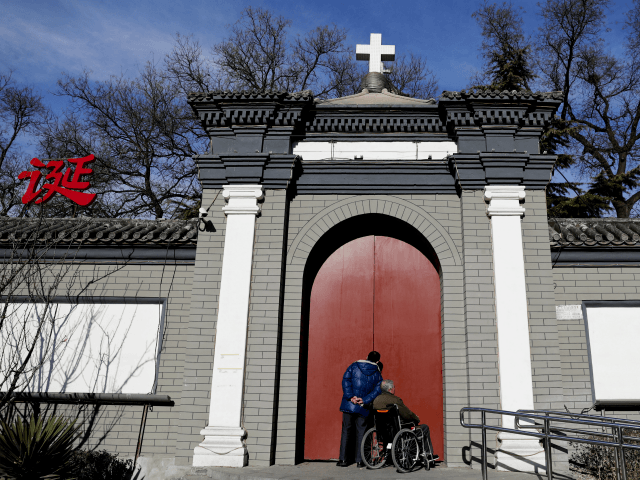Human rights website Bitter Winter reported on Monday that over 300 Protestant churches were shut down by the Chinese government in 2019 in a war on religious liberty that continues unabated during the coronavirus pandemic.
According to Bitter Winter, the shuttered churches included both underground or “house” churches and those belonging to the state-approved “Three-Self Patriotic Movement.”
Some of the closed Three-Self churches were ostensibly “merged” into larger churches, a procedure Bitter Winter described as “one of the CCP’s go-to tools to reduce the number of places of worship and increase control over them.”
Another common tactic employed to thin out the number of churches involves Chinese Communist Party (CCP) officials abruptly pulling the license for a church because it is supposedly due for renewal, but the new permit is never issued and the “unlicensed” church soon finds itself ordered to shut down. Sometimes the CCP pulls off a double play by “merging” smaller churches into a larger church that suddenly needs a permit renewal because of all the new parishioners.
Many independent churches were placed in jeopardy two years ago when a rule that allowed them to be administered by nearby Three-Self churches was rescinded. One Three-Self church mentioned by Bitter Winter had over forty “subordinate venues” operating under its license when the rules were changed.
Parishioners from shuttered churches sometimes try to keep worshiping together online, and of course the coronavirus pandemic made social media the only way to congregate in much of China. Another Bitter Winter report on Sunday noted that China is cracking down on online worship as well.
“Our first and only online gathering was blocked by the government soon after it started,” complained a preacher who took to the Internet after five consecutive real-world venues were shut down by police harassment.
Several Chinese cities have issued blanket orders banning online worship during the coronavirus, citing rules against such services that were promulgated long before the coronavirus.
“Very few organizations, and only those that hold state-issued licenses, can broadcast religious services and provide faith-related information online in China. And the content is also very heavily censored. The strict regulations have not been eased even during the pandemic,” the report observed.
Even those churches that manage to keep online services running during the pandemic find themselves subjected to burdensome regulations and pervasive surveillance, such as demands to remove religious symbols from their web pages or provide the real names of every participant in their Internet forums.
“The Public Security Bureau has information on all members of every WeChat group, and network inspections are carried out, especially strict during the pandemic,” a Three-Self pastor lamented.
The Epoch Times noted on Monday that China also stepped up its persecution of spiritual groups like Falun Gong during the pandemic, including arbitrary imprisonment and physical torture for its practitioners.
One of the detention facilities noted for abusing Falun Gong prisoners, the Wuhan Women’s Prison, was also hit hard by the coronavirus, recording 230 confirmed cases. Prison authorities refused to release or transfer detainees to protect them from the virus; on the contrary, additional police forces were brought in to maintain order in the Wuhan Women’s Prison, with their cell phones taken away so they could not expose the conditions inside.
According to Falun Gong advocates, the only bright spot is that the coronavirus made it more difficult for Chinese officials to hold court hearings where practitioners could be sentenced to prison. On the other hand, the advocates noted arrests have not declined nearly as much as convictions during the pandemic, and the outbreak has given officials a handy way to imprison disfavored individuals in their homes without having to arrest or convict them.

COMMENTS
Please let us know if you're having issues with commenting.